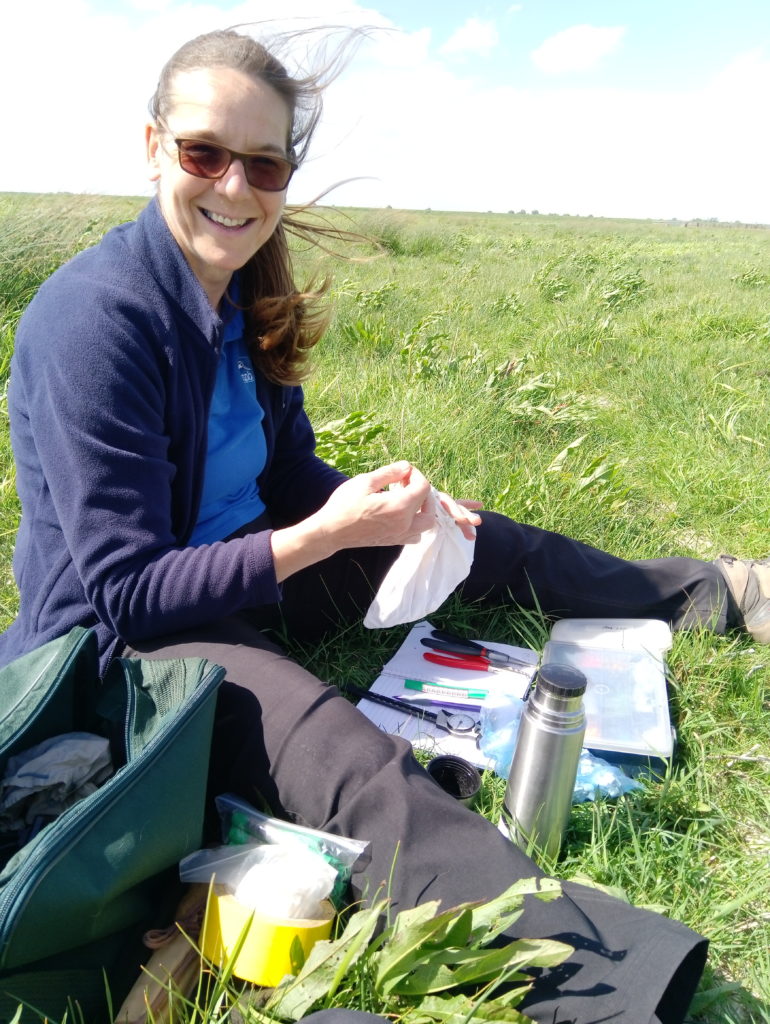A team effort for waders.
From UK wetlands to global grasslands
“Species conservation has been at the heart of my whole career,” says Professor Jennifer Smart. My research specialism is the conservation of a group of birds known as waders, which includes species like lapwing, redshank, curlew and black-tailed godwit. Waders are amongst the most endangered group of birds, suffering from a variety of problems including habitat loss and increased predation.
“Over the last 15 years, my research has helped inform the conservation strategies most important for the successful management of breeding wader populations. This has had direct influence over the management of some of the largest breeding wader populations in low-lying wetlands, particularly on the RSPB’s network of reserves but also influencing management of grasslands across landscapes managed by farmers in the UK and overseas.
“Of course, I have not done this alone – it’s been a huge RSPB team effort, along with academic collaborators, especially at the University of East Anglia and with the many MSc and PhD students whose ideas and energy have driven forward much of this work.
A huge honour
“I didn’t start my conservation career as a scientist. I did an HND in Conservation Management in the early 1990s, and then spent the next few years working in practical conservation. Over those years, I gradually got more interested in the monitoring and science of conservation through doing bird surveys and becoming a keen bird ringer. Eventually, I went back to studying, doing an Ecology degree and PhD at the University of East Anglia with research contracts at RSPB and BTO in between years at university. I have been with the RSPB Centre for Conservation Science since 2006. I did have a brief, two-year, foray outside of Conservation Science as RSPBs Head of Species for England, where I was working at the science, policy and practice interface, before coming to my current role as Head of Conservation Science for Scotland and Northern Ireland in 2021.

“I would say I’m now much more of a manager than a scientist. I have the huge honour of leading a team of around 25 brilliant conservation scientists who deliver the evidence and scientific support the RSPB needs to achieve conservation outcomes across Scotland and Northern Ireland. My team works on a huge range of conservation problems and solutions – from single-species recovery work to long-term landscape-scale restoration projects.
“When I’m not working, I love to keep fit and particularly love cycling – our bodies were not meant to be sat at a desk all day so keeping active is great for both your mental and physical health. I also really enjoy just spending time with family, friends and my two spaniels and I really enjoy growing things to eat in the garden. Having a healthy work life balance is important for everyone but I’m finding this is especially important as you get a little older!”
Professor Jennifer Smart is Head of Conservation Science for Scotland and Northern Ireland at the Royal Society for the Protection of Birds, an Honorary Professor at the University of East Anglia, and the current Chair of the International Wader Study Group. Find out more here and follow her on Twitter @drredshank.
This post is part of a series showcasing Scotland’s innovative, high-impact research supporting biodiversity conservation, in partnership with Scottish Government and NatureScot. Read the rest of the series here.
Further reading
Smart, J., et al. 2006. Grassland-breeding waders: identifying key habitat requirements for management. Journal of Applied Ecology 43(3): 454—463. https://doi.org/10.1111/j.1365-2664.2006.01166.x
Laidlaw, R.A., et al. 2015. The influence of landscape features on nest predation rates of grassland-breeding wadersx. Ibis 157(4): 700—712. https://doi.org/10.1111/ibi.12293
Laidlaw, R.A., et al. 2017. Scenarios of habitat management options to reduce predator impacts on nesting waders. Journal of Applied Ecology 54(4): 1219-1229. https://doi.org/10.1111/1365-2664.12838
Roos, S., et al. 2018. A review of predation as a limiting factor for bird populations in mesopredator-rich landscapes: a case study of the UK. Biological Reviews 93(4): 1915—1937. https://doi.org/10.1111/brv.12426
See all Jennifer’s publications here.
